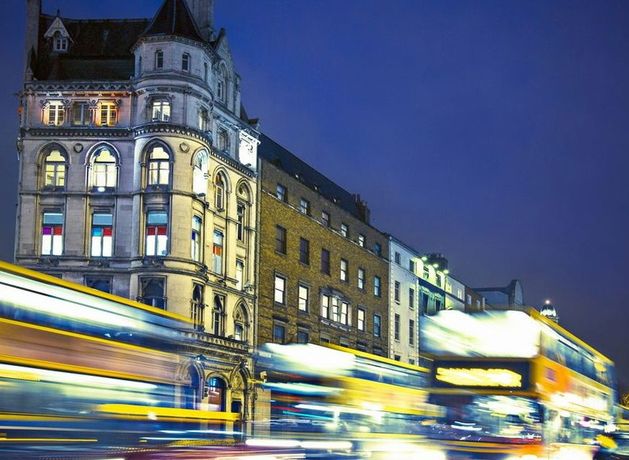Work will begin on the 9.2km corridor from Liffey Valley in west Dublin to the city centre in September and it is to be completed in three years.
The project is expected to cost between €198m and €247m, with Irish firm GMC Group getting the main contract.
Announcing the contract and work schedule, Transport Minister Darragh O’Brien said the project would transform bus use in the city.
Passenger numbers on services using the corridor were expected to rise by 58pc, and an increase of 45pc in walkers and cyclists was expected on the accompanying new pedestrian and cycling infrastructure.
“Today marks a major turning point for BusConnects and for public transport in Dublin,” Mr O’Brien said. “BusConnects is about future-proofing our city’s transport network – creating a cleaner, better connected city that works for commuters, communities and the climate.”
Dublin already has numerous bus lanes but the bus corridors will be exclusively for buses, with priority access at junctions and traffic lights.
Twelve corridors have been designed, each running from a point near the city centre to a suburb or splitting half-way to serve two suburbs.
They will run to a total length of 230km and be accompanied by 200km of new or improved cycle lanes.
Road widening to create the corridors will require shaving off parts of the gardens and grounds of hundreds of homes and business premises, with hundreds of roadside parking spaces and trees also to be removed.
Contracts for a second corridor, running to Ballymun and Finglas, are due to be signed before the end of this year, with construction to begin early in 2026. A third, the route serving Tallaght and Clondalkin, is to go to tender late this year.
The other nine corridors have planning permission but six are being challenged in the courts.
Mr O’Brien said he could not give a timeframe for the completion of the entire project as a result. However, he said he expected commenced projects would stick to targets.
In preparing the contracts, he said: “I emphasised two things – on time and on budget.”
The minister also said he was hopeful of MetroLink getting planning permission shortly.
He said he disagreed with recent comments by Ryanair boss Michael O’Leary that the project was an unnecessary waste of money that wasn’t needed for Dublin Airport.
“I’m not sure if Michael has looked at the business case for Metro – that for every euro invested there will be a return of €4 to the economy and the exchequer,” he said.
The minister confirmed that the extension of free travel for children up to eight would go ahead “in September or October”.
He gave no assurances around the continuation of the 20pc cut in public transport fares introduced during the cost of living crisis, however.
He also said he expected contactless payment on public transport would begin from late 2027.

